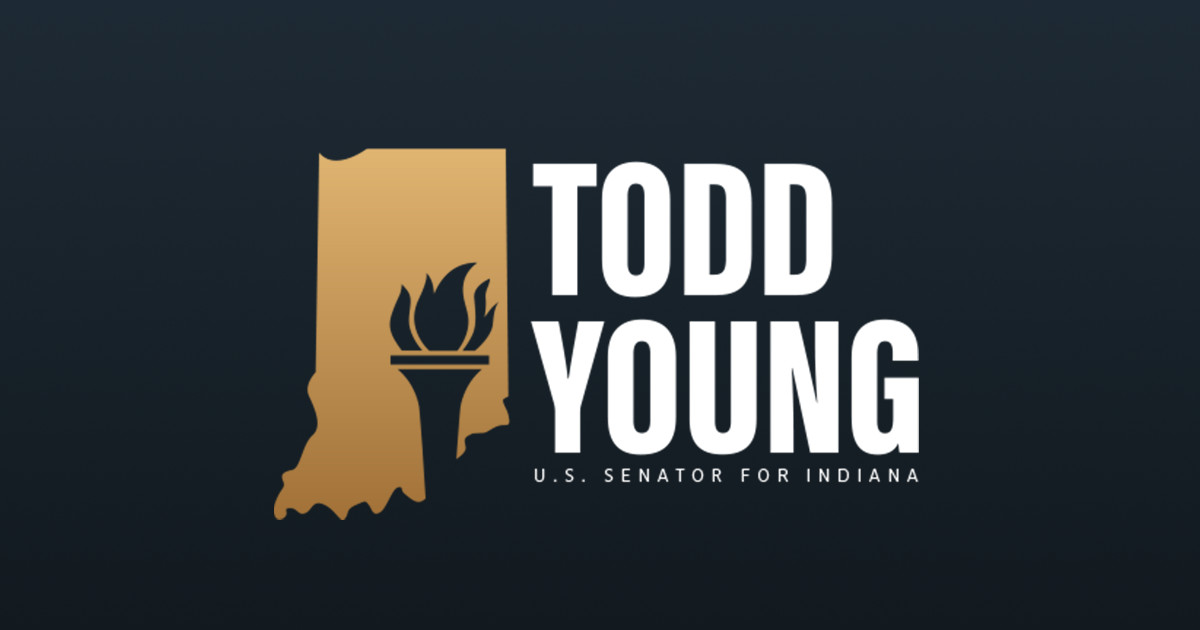Source: United States Senator for Indiana Todd Young
WASHINGTON – Today, U.S. Senator Todd Young (R-Ind.) and U.S. Representative Ro Khanna (D-CA-17) hosted a first-of-its-kind roundtable conversation with the deans of leading business schools from around the country. The conversation revolved around some of the most pressing issues at the forefront of business and governance, including the future of artificial intelligence, global health innovation, and sustainability practices.
Since World War II, the United States has led the global economy and pushed the frontier of technological innovation. Business school deans and members of Congress gathered to discuss strategies to keep American businesses globally competitive and dynamic and to educate the next generation of diverse leaders to prioritize investing in America and our workforce. The group discussed how to best tackle these challenges in a way that aligns with the nation’s core values. Business schools will help build the future economy and mold the next generation of business leaders, so it’s important for deans be a part of these conversations in Congress.
Young and Khanna previously collaborated on the Endless Frontier Act, which ultimately became the CHIPS and Science Act and was signed into law in 2022. The new law authorized a major investment in the discovery, creation, and manufacturing of key technology areas in the United States. Young and Khanna share a vision for a bright economic future that relies on American science, research, innovation, and production to enhance U.S. competitiveness with China.
“Congressman Khanna and I are committed to ensuring America is a global leader in innovation and technology,” said Senator Todd Young. “A major part of that leadership is the ability to collaborate across the public and private sectors, which is why this event is important. I am grateful that these business school deans are sharing their time, ideas, and expertise with us, and I look forward to additional collaboration in the months and years to come.”
“A strong economy is foundational to American democracy. That’s why I’ve called for a new economic patriotism—a bold national vision to bring manufacturing jobs and innovation back home to the United States,” said Rep. Ro Khanna. “Strengthening the economy is about more than just creating jobs, it’s about rebuilding the working class and bringing people together around a common purpose. But lawmakers can’t do it alone. This event is a great start to encourage collaboration between the private and public sectors and foster a spirit of unity among the next generation of leaders. I am honored to co-host this event with my colleague Sen. Young, who has supported key legislation to reinvigorate the economy, and Jonathan Levin, dean of one of the world’s leading academic institutions in Silicon Valley.”
“America’s business schools have the responsibility of educating the next generation of leaders for business and society,” said Jonathan Levin, Dean of Stanford Graduate School of Business. “At a time of rapid change and new challenges, we need more events like the one today on Capitol Hill to share perspectives, explore ideas, and set a course for innovation, opportunity, and prosperity.”
“The business world moves very fast, and discussions like these are vital to ensure we’re all working toward a vibrant and innovative economy,” said Ash Soni, Dean of the Kelley School of Business at Indiana University and The Sungkyunkwan Professor. “We can do this through teaching future business leaders to be nimble and to recognize opportunities, and through conducting research that has both a meaningful societal impact and a positive economic impact on the state and the nation.”
Roundtable participants included the deans of leading U.S. business schools: Jonathan Levin (Stanford), Ash Soni (Kelley School, Indiana University), Erika H. James (Wharton School, University of Pennsylvania), Costis Maglaras (Columbia), Francesca Cornelli (Kellogg School, Northwestern), Lillian Mills (McCombs School, University of Texas Austin), Madhav V. Rajan (Booth, University of Chicago), and Matthew Slaughter (Tuck School, Dartmouth).
